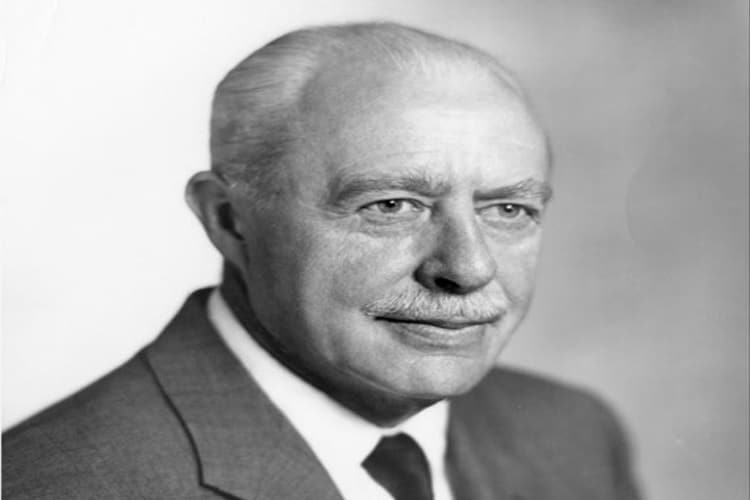Harmonies of Innovation: The Walter Houser Brattain Story

Walter Houser Brattain (10 February 1902 – 13 October 1987) was an American physicist. He was awarded the Nobel Prize in Physics in 1956.
Life and Career
Walter Houser Brattain was born on 10 February 1902, in China-Amoy.
Brattain pursued his education in physics and earned a bachelor’s degree from Whitman College in Washington in 1924. He continued his studies at the University of Oregon, where he completed his master’s degree in 1926. Brattain then earned his Ph.D. in physics from the University of Minnesota in 1929.
After completing his doctorate, Brattain embarked on an academic career. He worked as a research physicist at Bell Telephone Laboratories in Murray Hill, New Jersey, beginning in 1929.
One of the most significant moments in Walter Brattain’s career came in 1947 when he, along with his colleagues John Bardeen and William Shockley, invented the transistor. This tiny semiconductor device served as an alternative to bulky vacuum tubes in electronic circuits, making electronics smaller, more efficient, and reliable.
The invention of the transistor marked the birth of modern electronics, leading to the development of computers, integrated circuits, and countless other electronic devices. For their groundbreaking work, Brattain, Bardeen, and Shockley were jointly awarded the Nobel Prize in Physics in 1956.
After the success of the transistor, Brattain continued his research and academic career. He worked at Bell Labs until 1967 when he retired as a fellow. He then taught at Whitman College as a professor until his full retirement in 1972.
Walter Houser Brattain passed away on 13 October 1987, in Seattle, Washington, United States.
Award and Legacy
Walter Houser Brattain, along with John Bardeen and William Shockley, was awarded the Nobel Prize in Physics in 1956 for their groundbreaking invention of the transistor. This recognition solidified his place in history as a pioneer in the field of electronics.
Brattain’s most significant contribution was the invention of the transistor in 1947. The transistor revolutionized the world of electronics by replacing bulky vacuum tubes, leading to the miniaturization of electronic devices and the birth of modern computing. It laid the foundation for the semiconductor industry and is considered one of the most important inventions of the 20th century.
Brattain’s work on the transistor had a profound and lasting impact on technology. It enabled the development of smaller, more reliable, and energy-efficient electronic devices, including computers, smartphones, and countless other electronic gadgets that have become integral to modern life.
Brattain’s research and experimentation in solid-state physics contributed significantly to our understanding of semiconductors and the behavior of electrons in materials. His work paved the way for further research in this field, leading to innovations in materials science and electronics.
Throughout his career, Brattain also made contributions to education by teaching and mentoring students. He served as a professor at Whitman College and shared his knowledge and passion for physics with the next generation of scientists and engineers.
Observer Voice is the one stop site for National, International news, Sports, Editor’s Choice, Art/culture contents, Quotes and much more. We also cover historical contents. Historical contents includes World History, Indian History, and what happened today. The website also covers Entertainment across the India and World.

